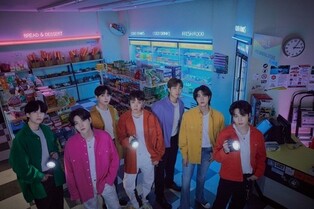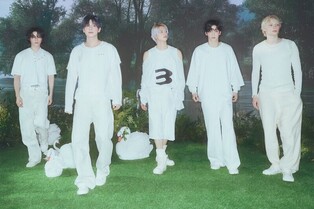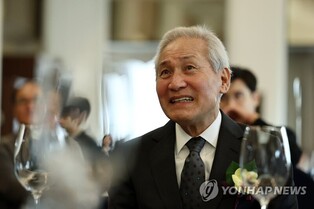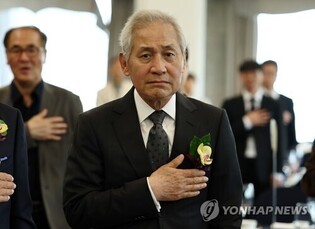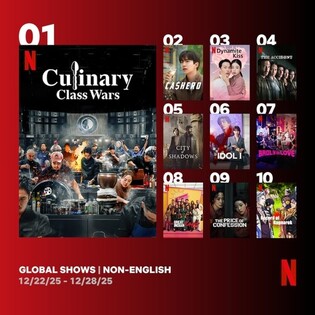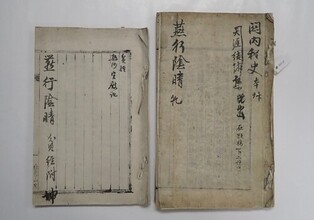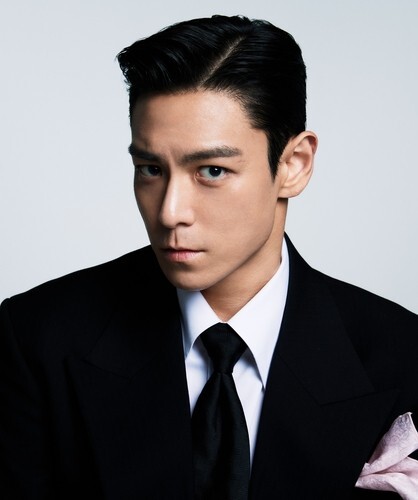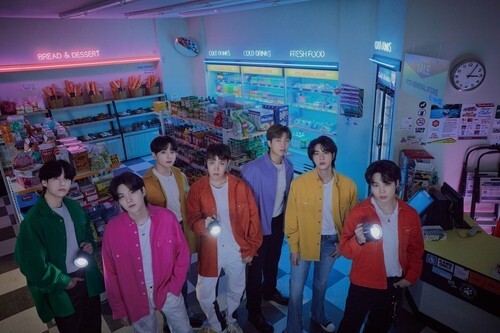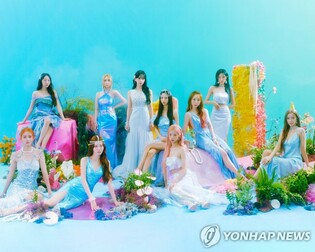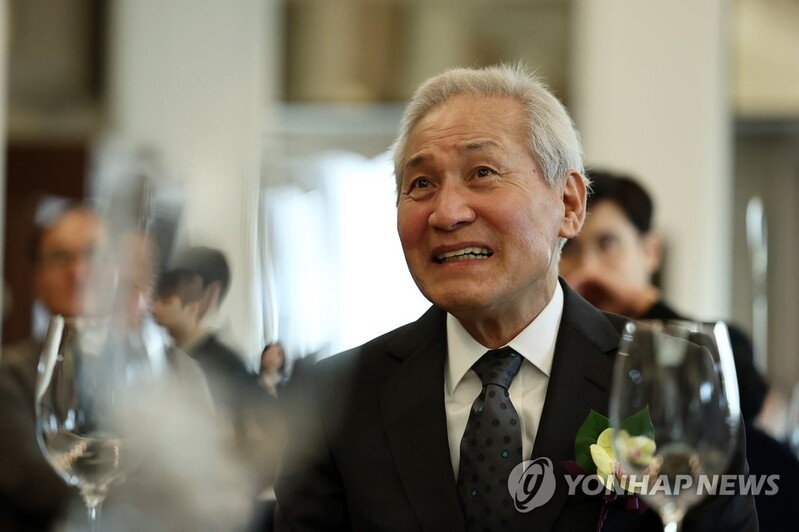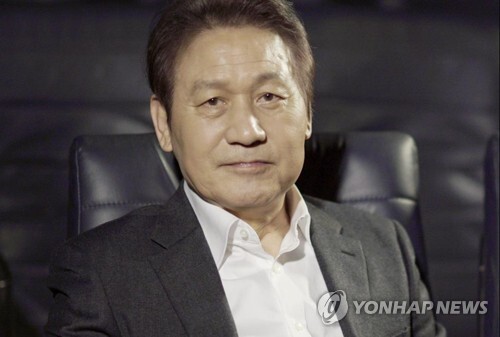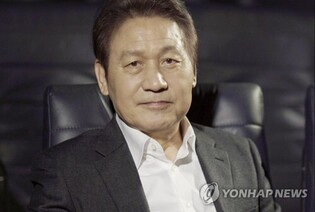(Movie Review) Mickey 17
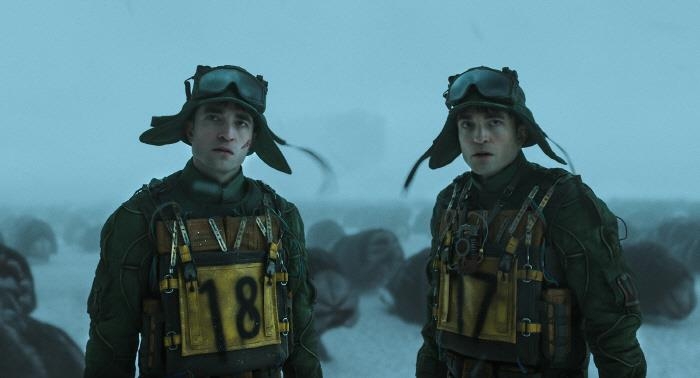 |
| ▲ Mickey 18 and 17 are shown in this still from "Mickey 17," provided by Warner Bros. Korea. (PHOTO NOT FOR SALE) (Yonhap) |
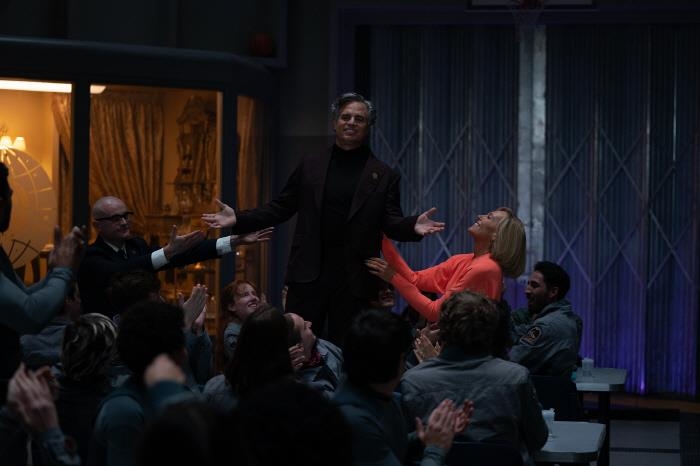 |
| ▲ This still from "Mickey 17," provided by Warner Bros. Korea, shows Kenneth Marshall (C) and his wife, Ylfa. (PHOTO NOT FOR SALE) (Yonhap) |
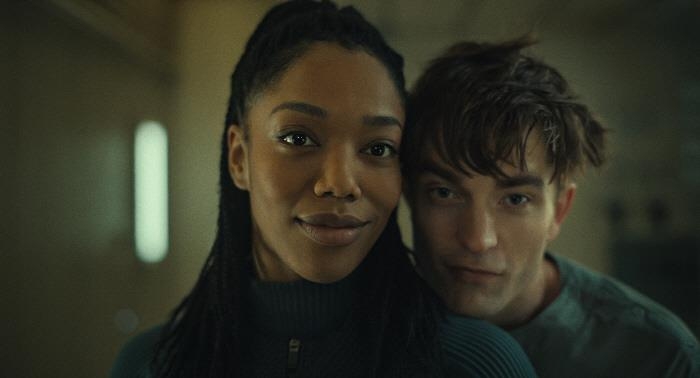 |
| ▲ This still from "Mickey 17," provided by Warner Bros. Korea, shows Nasha and Mickey. (PHOTO NOT FOR SALE) (Yonhap) |
(Movie Review) Mickey 17
(Movie Review) 'Mickey 17': Bong Joon-ho's eerie yet hopeful satire on dystopian cloning future
By Woo Jae-yeon
SEOUL, Feb. 19 (Yonhap) -- Set in a near-future where human life is treated as disposable, South Korean auteur Bong Joon-ho's dark comedy "Mickey 17" is an unexpectedly warm and wickedly funny movie that ultimately affirms humanity's enduring spirit and love.
Beneath its sci-fi veneer, the film touches upon social issues, including political ineptitude, corruption, social inequality, colonization and capitalist greed -- themes that Bong has explored throughout his career from "Barking Dogs Never Bite" (2000) to his award-winning "Parasite" (2019).
At the center of the story is the protagonist, Mickey Barnes (Robert Pattinson), who, after his failed macaron venture with his friend Timo (Steven Yeun) leaves him in debt and facing death threats from a notorious loan shark, desperately signs up for a colony expedition to the planet Niflheim to flee Earth.
In a twist of irony, he takes a job that requires him to die -- repeatedly -- just to survive. He does so after failing to read the contract's fine print, a blunder that may resonate with viewers who have faced similar pitfalls in their own lives.
In the film's opening scene, which sets the tone for its exploration of human life's value, Mickey, his 17th iteration, plummets into a deep crevice during an expedition on Niflheim. Lying on his back, injured and helpless, he sees his friend Timo approaching, seemingly to rescue him. But instead, Timo is more interested in retrieving Mickey's intact flamethrower, barely acknowledging his dire situation.
"What's it feel like to die?" Timo asks, then casually adds, "Nice knowing you. Have a nice death, See you tomorrow," before nonchalantly climbing back up, leaving Mickey behind.
"We're cool. You shouldn't have to take the risk, hon," Mickey replies, his tone equally nonchalant. But beneath it, there is a hint of sadness. After all, it is a human life at stake, no matter how resigned he may be to his fate.
Mickey is assigned to lethal, terrifyingly painful tasks under the guise of saving humanity, with his body "reprinted" over and over again. His palpable resignation, coupled with the fact that others take his sacrifices for granted, draws a stark parallel to today's deepening social inequality and capitalism, where workers are reduced to mere cogs in a machine.
Another key pillar of the narrative, inviting viewers to reflect on contemporary political affairs, is the ruthless power couple, Kenneth Marshall (Mark Ruffalo) and his wife, Ylfa (Toni Collette), who lead the expedition.
With a sinister scheme to build his own world on Niflheim, Marshall constantly issues ridiculous orders, trying to sound authoritative and important, but only reveals his tragic incompetence. He is, in reality, only a puppet controlled by his domineering, sauce-obsessed wife.
The couple serves as a satirical nod to real-life political figures, who try to exert influence but often come across as hollow and lacking substance.
"Mickey 17" may not be Bong's best film to date, nor does it reach the holistic masterpiece level of "Parasite." The film feels a bit loose midway, as it attempts to drive home too many points at once. But it is certainly one of his warmest movies, offering hope in the resilience of humankind and its essential goodness, which ultimately leads to the right decision.
As the director previously noted, this is also his first film that places romance at the core of its narrative. Mickey's girlfriend, Nasha (Naomi Ackie), spares no effort in offering him unwavering support, even when the situation takes a drastic turn following the accidental "reprinting" of Mickey 18, a stronger and more adamant iteration who refuses to be exploited as an "expendable."
The film suggests, in the end, what truly matters is collective intelligence pursuing the common good. While Mickey starts out resigned to his fate, he ultimately finds the resolve to reclaim his self-worth and fight against being erased.
"Mickey 17," which had its global premiere at the 75th Berlin International Film Festival on Saturday, is set for local release next Friday.
(END)
(C) Yonhap News Agency. All Rights Reserved




















